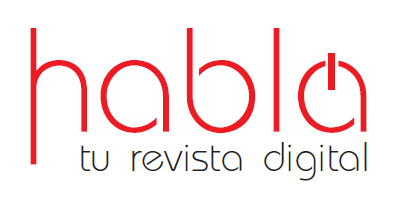Buenos días chicos :)
Today I would like to address the fear many language students face when it’s time for them to use that language in the real world.
First I would like to tell you that I struggled with this when I was learning English. I was thrown into a classroom with 20+ kids and the teacher had them ask me questions one by one. I didn’t understand much and certainly couldn’t respond in complete sentences. With 40+ eyes on me I was completely traumatized and was praying to be struck by lightning right then & there.
Many years later, after studying French for 3 years (I was about 16-17 at that time), I went to Paris and tried out my French. The first person I spoke to said they didn’t understand and walked away from me. I felt completely humiliated and didn’t utter a word in French again, until last year.
Based on those experiences, when I started PBO, one of my goals was to create an un-intimidating environment. I wanted students to feel welcome and able to make mistakes. I think we have done a good job of creating that vibe (onda), however I cannot control what happens out there in “the real world.”
So what do you do if you are one of those people that are terrified of speaking Spanish in public?
1 – Ask yourself why you’re scared and what is the worst that could happen. For example:
- Why am I afraid to speak Spanish to my boyfriend’s family?
- Because I’m embarrassed
- Why do I get embarrassed?
- Because I make a lot of mistakes
- And what happens when I make a mistake?
- Sometimes they laugh
- And what’s the worst that can happen if I say something ridiculous and they laugh?
- I turn bright red and feel dumb
- And what happens if I turn red and feel dumb? Will I die from this? Will I be causing harm to anyone if I say something dumb? Or will I forget about it and learn from it?
2 – Pay very close attention to how you see non-native English speakers. Do THEY annoy YOU? Are YOU judging THEM? Do you see yourself through the same eyes that you see them when they speak English to you? What is your judgement criteria when you speak to a foreigner? For example, for me the only criteria is that I can understand them. I am not pointing out their mistakes in my head, I am not annoyed with them, I do not think that they should shut up until they speak perfectly, etc. There is no judgement from my part at all unless they have a very heavy accent & speak too fast at the same time. When you run into this combo it can be very difficult to comprehend the other person (so if you have a strong American accent when you speak Spanish, slow down).
3 – Spend more time practicing whatever it is that makes you most embarrassed, which for some people is not understanding native speakers & for others is not being able to respond. Both speaking & listening are crucial when you’re learning a language. The more you practice, the more comfortable you will feel. If you stay away from what makes you nervous you will never improve.
4 – Remember that many Spanish speakers are grateful and flattered when a “gringo” learns their language. They usually respect and admire your effort rather than judge your mistakes. Yes, there are some jerks out there, but for the most part people are very appreciative of your effort.
5 – Accept the fact that you will never speak a foreign language perfectly. Unless you grow up speaking that language in the country it is spoken in, you will never speak it as well as a native speaker. That’s not to say that with years of practice you won’t speak it incredibly well, but you are not a native speaker of that language and never will be. It is what it is.
The last thing I will say about this is that in my old age I have learned that mindset is everything. If you have the attitude that you will make a bunch of mistakes and sound like an idiot, you probably will. If you believe that you can communicate with people from 21 countries because of the hard work that you have put into learning Spanish, you will. It’s all in the attitude :)
Besitos,
Caro




 La tarea opcional de esta semana
La tarea opcional de esta semana e todos estén bien!
e todos estén bien!
 Buenos días maravillosos alumnos de español :)
Buenos días maravillosos alumnos de español :)